Nigerian Dwarf goats are a small breed of dairy goats that originated in West Africa. They are known for their miniature size, friendly disposition, and high milk production relative to their size. Nigerians are versatile animals suitable for small farms, suburban homesteads, or as enjoyable pets. Their manageable size and friendly nature make them a popular choice for goat enthusiasts.
Small in size, great for dairy
Small in stature, does typically stand about 17 to 21 inches tall at the shoulder, and bucks slightly larger. They usually weigh up to 100 pounds. They come in a variety of colors and patterns. Common coat colors include black, chocolate, gold, and cream. They can also have various markings and patterns such as moon spots, stripes, and roaning.
Despite their small size, Nigerian Dwarf goats are excellent dairy producers. They have a high butterfat content in their milk, making it suitable for cheese and soap production. On average, a Nigerian Dwarf doe can produce over a quart of milk per day.
Nigerian Dwarf goats are known for their friendly and sociable nature. They are often kept as pets or companion animals because of their gentle disposition. They can also be easily trained, making them suitable for various purposes, including 4-H projects and educational programs. With proper care, Nigerian Dwarf goats can live up to 12 to 14 years or even longer. These goats are capable of breeding year-round, and they often have multiple kids (baby goats) per kidding. The gestation period is approximately 145 to 150 days. They are prone to common goat health issues, such as parasites and hoof problems. With regular veterinary care, vaccinations, and proper nutrition Nigerian Dwarfs are relatively easy to keep healthy.
- Pasture and forest vegetation including vines, leaves, tree nuts and fruit
- Hay
- Alfalfa
- Fruit and vegetables year round, pumpkin and squash in the fall
- Supplemental mixture of commercial goat feeds
- Multicolored, white, cinnamon, tan, black with spots
- Horned or naturally hornless (we do not disbud our goats)
- Smaller goat with a shy to playful temperament
- Adults are less than 100 pounds
- Great tolerance to the Florida weather except rain
- 1 doe can produce up to 95 gallons of milk per year
- Milk is high in butterfat and protein
- Excellent ice cream, cheese, butter and rich ingredient in desserts
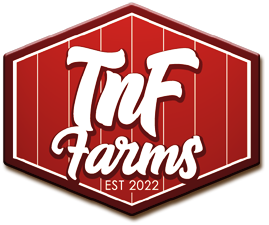
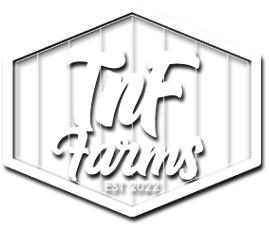
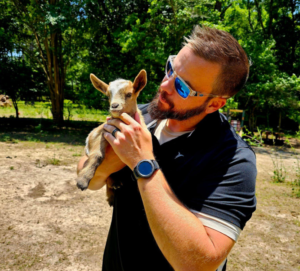
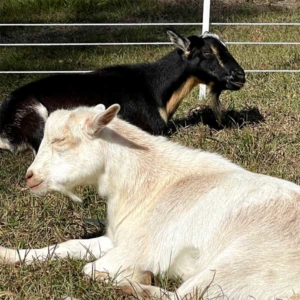
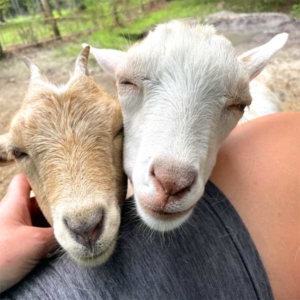
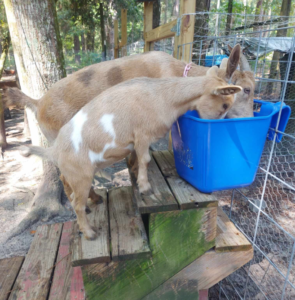
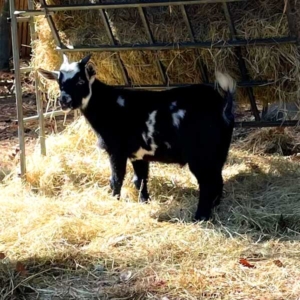
Florida’s Raw Milk Laws
/in Farm Animals, Florida Living, Homesteading, Nigerian Dwarf Goats, Nubian Goats/by TimFlorida, known for its stunning beaches and year-round sunshine, is also home to a complex set of regulations governing the sale and consumption of raw milk. Raw milk enthusiasts and producers in the state must navigate a legal landscape that balances the desire for access to unprocessed dairy with concerns about public health and safety. In this blog post, we’ll delve into Florida’s raw milk laws, exploring the regulations, benefits, and challenges associated with raw milk in the Sunshine State.
Foraging for Goats
/in Farm Animals, Homesteading, Nigerian Dwarf Goats, Nubian Goats/by KaitlynIn the world of goat keeping, the concept of foraging is gaining increasing recognition as a fundamental element in promoting the health and happiness of our beloved goats. While traditional feeding methods certainly play a role, integrating foraging into your goats’ routine can have a multitude of benefits. Let’s explore why foraging is essential for goats and how it contributes to their overall well-being and health.
Registered Livestock Pros and Cons
/in American Guinea Hogs, Farm Animals, Farmer's Market, Homesteading, Nigerian Dwarf Goats/by TimWhen it comes to raising livestock, whether for meat, milk, or other products, farmers often face a choice between registered and non-registered animals. Registered livestock, which are typically associated with purebred or pedigree breeds, come with their own set of advantages and disadvantages. In this blog post, we’ll explore the pros and cons of raising registered livestock to help farmers make informed decisions about their animal husbandry practices. TnF Farms has both registered and unregistered livestock. The animal’s purpose is dependent on whether or not it is registered. TnF Farms is also a member of the American Guinea Hog Association.